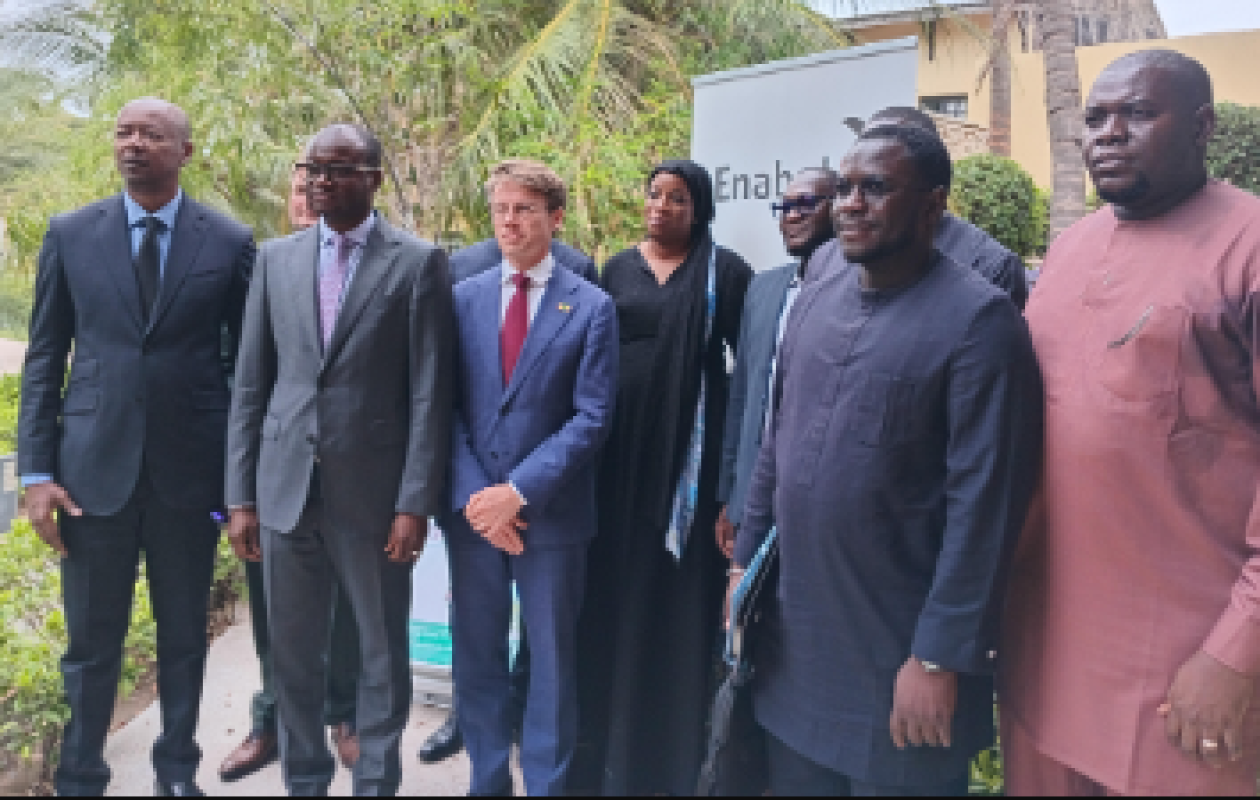
90 % des entreprises évoluent dans l’informel : L’État lance un programme massif de formalisation d’ici 2030
Senegal aims to reverse the trend of an economy dominated by the informal sector, which accounts for over 90% of its business. A workshop to validate the formalization index, organized by the Agency for the Development and Support of SMEs (ADEPME) with the support of Belgian cooperation through ENABEL, paves the way for an ambitious national program to halve the number of informal businesses by 2030.
The challenge of formalizing small and medium-sized enterprises (SMEs) is more pressing than ever at the heart of the Senegalese government's priorities. Adama Baye Racine Ndiaye, Chief of Staff of the State Secretariat for SME Development, reiterated the urgent need for action. He also announced a national program for mass formalization, which will consolidate the disparate efforts undertaken by the Ministry of Crafts, chambers of commerce and trades, and development partners. The objective: to reduce the share of informal businesses by 50% by 2030.
“More than 90% of businesses operate in the informal sector, and this cannot continue. That is why, as part of our strategy, we have identified a flagship project that must be implemented quickly. This is the massive formalization program, which will consolidate all the initiatives being developed here and there by the ADPME (National Agency for the Development of Small and Medium Enterprises), the Ministry of Handicrafts, the Chambers of Commerce, Industry and Agriculture, the Chambers of Trades, and our development partners. This program aims to consolidate all these initiatives and create a national massive formalization program with the objective of reducing informal businesses by 50% by 2030. This is a very ambitious objective considering everything that has been developed since we started talking about it. It's as if we still haven't found the right solutions,” declared Adama Baye Racine Ndiaye.
The initiative, led by ADEPME and ENABEL, is part of the Natal Sine-Saloum project, which aims to strengthen the inclusive economy in the central regions of the country.
An index as a compass for public action
The formalization index, a new measurement tool developed by ADEPME, is intended as a steering instrument to monitor and encourage the gradual transition from the informal sector to the formal sector. "This index will be our compass. It will allow us to assess the progress made and support stakeholders in the various stages of the formalization process," explained Mr. Ndiaye.
Beyond tax and social security declarations, formalization will allow SMEs to access new opportunities. According to the chief of staff of the State Secretariat for the Development of SMEs and SMIs, "if you are not formalized, you cannot bid on public contracts or apply for certain funding."
The national strategy for the promotion and development of SMEs also includes the upcoming adoption of a decree establishing the legal status of SMEs, which is expected to complement the framework law on SMEs. This legislation should offer tax and administrative advantages to registered businesses.
Robin Thiers, Deputy Head of Mission at the Belgian Embassy and Head of Cooperation, praised the inclusive and pragmatic approach. "The formalization process is not simply a matter of a strict boundary between formal and informal. The index will allow us to better understand the intermediate stages experienced by entrepreneurs," explained Mr. Thiers.
According to him, this tool will help strengthen the entrepreneurial fabric, create jobs for young people and women, and broaden the tax base.
Thus, the State, support institutions, the private sector, and technical partners aim to make formalization a major driver of growth and competitiveness. "It's a matter of communication, support, and capacity building, but also a collective responsibility," stated Adama Baye Racine Ndiaye.
Through this massive program, Senegal intends to initiate a new economic era where formalized SMEs will be the engine of more inclusive, sustainable and competitive development.
Commentaires (6)
Dans un contexte de pression fiscale c’est illusoire de penser à encourager les entreprises à se formaliser.
Quand on augmente la pression fiscale, le résultat le plus probable ce sera la course vers la dissimulation fiscales ou l’informel
Où Mame Boye Diao le grand milliardaire dont la Range Rover coûte 90 millions ?
Participer à la Discussion
Règles de la communauté :
💡 Astuce : Utilisez des emojis depuis votre téléphone ou le module emoji ci-dessous. Cliquez sur GIF pour ajouter un GIF animé. Collez un lien X/Twitter, TikTok ou Instagram pour l'afficher automatiquement.